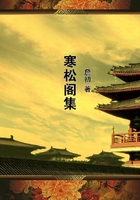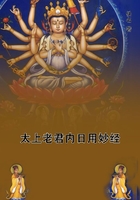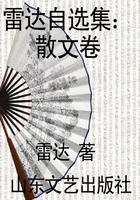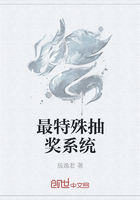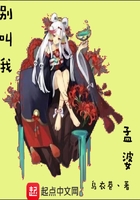goods units of value The negative element arises from the indifference with which men naturally regard goods. Only when forced to it, do we transfer our interest from the uses of goods to the goods themselves; and, in the process of transferring, we have to overcome a natural opposition which varies in strength according to the circumstances. The greater the need, the more eager will we be to get possession and keep possession of goods: the smaller in this case will be the opposition. The opposition will be completely broken down where our need rises to extremity, for here we identify our destiny with that of the goods, and in their loss we see our own calamity. On the other hand, the opposition will be complete where everything is present in superfluity; here we can enjoy without any feeling of gratitude for, or interest in, the objects which procure for us the enjoyment. Between extremest need and superfluity the opposition is a graduated one: we bestow upon goods an amount of interest derived from the interest we have in the services they render us. But we do not give them the whole of this interest; we make a certain reservation. That is to say, all the single items of a stock are considered only at the value of their marginal utility. The surplus value, that which goes beyond their marginal utility, is withheld from the goods.
Here, then, is the numerical expression for the strength of this opposition: the negative element in the formation of value is equal to the subtracted surplus value. Making use once again of the foregoing figures, we find that, so long as we own only one good, there is no deduction in the formation of its value; the entire value of the use is transferred, undiminished, to the good. With two goods, on the other hand, there will be a deduction of 1 from the value, as each of these is valued only according to its marginal utility 9, while the utilities of both added together amount to 10 + 9. Three goods have each a value only of 8, and their utility is equal to 10 + 9 + 8, the surplus value deducted being therefore 3. Reckoning further in the same way, we shall find the minus amount in the formation of value as follows: --With a stock of the minus is 1 02 1
3 3
4 6
5 10
6 15
7 21
8 28
9 36
10 45
11 55
goods units of value.
If we put together the plus and minus amounts we shall obtain the following as result: --Positive (+) Negative (-)Residual (+)1 10 0102 19 1183 27 3244 34 6285 40 10306 45 15307 49 21288 52 28249 54 361810 55 451011 55 55 0goods units of value units of value units of value Thus we obtain the same scale as that which resulted from the multiplication of amount by marginal utility.
It is now seen that the apparent irregularity of the scale is really a consequence of the strict regularity of its conditions.
The value of a supply must increase with the increase of its items so long as the positive element preponderates; in other words, so long as the increment of value, furnished by the utility of the newly-acquired good, is greater than the value which is lost through the decrement of value which its addition causes to every good already in the stock. This is the ascending branch of the movement of value, or, as we might call it, the "up grade" of value.
On the other hand, the value of a supply must decrease with its augmentation, whenever the negative element gains the ascendency. This is the descending branch of the movement of value, or the "down grade" of value.
Strange though it seems, the value must touch zero twice in the course of its development: in the one case, where we have nothing; in the other, where we have everything. If we possess nothing, there are no objects to value; if we possess everything, there is -- just on account of the superfluity -- no subjective inducement to an act of valuation. Only if we possess something -- be it much or little -- does the phenomenon of value appear;and between the two zero points, so different in their importance, it has its existence. It presents itself with the first goods that come into our possession, and increases up to a certain culminating point, from which it decreases, until, when superfluity is reached, interest is again completely withdrawn from the goods.
As a matter of fact, human economies move almost entirely in the ascending branch. In most things we are so far from having a superfluity that almost every multiplication of goods shows a corresponding increase in the total value. The single good certainly falls in value as the stock increases, but as a rule we find that the loss in the items is outweighed by the gain on the whole. On this account we are accustomed to measure wealth and riches by the sum of value of their constituent parts, and regard it as a misfortune if the value of property and revenue goes down. And therefore it appears to us paradoxical when, at times, we are forced to notice that, although the amount of goods and of enjoyments, of wealth and well-being, has been augmented, their value has decreased. It may be that exceptionally favourable weather has resulted in an over-abundant harvest; or it may be the discovery of some new productive stratum of unsuspected fertility; or some sudden and enormous increase of returns through advance in technical processes: or it may be caused by some error on the part of the producer, who has been misled by greed of gain, or a mistaken and exaggerated estimate of demand, into too greatly enlarging his production. But it is always some unusual accident when individual branches of economy are transferred to the descending branch in the movement of value. It is improbable that our whole economic system will ever permanently come under such favourable conditions, and production be brought so near to superfluity, that the ascending movement of value will cease to be the dominant one. The example, however, of those few free goods which nature offers leaves us no room for doubt that value disappears whenever superfluity is reached; and this is really the best proof for our contention that value must begin to decrease whenever superfluity approaches. Even though experience shows the scale of value to have many gaps, yet it gives us sufficient facts to let us trace its ideal course from end to end.



